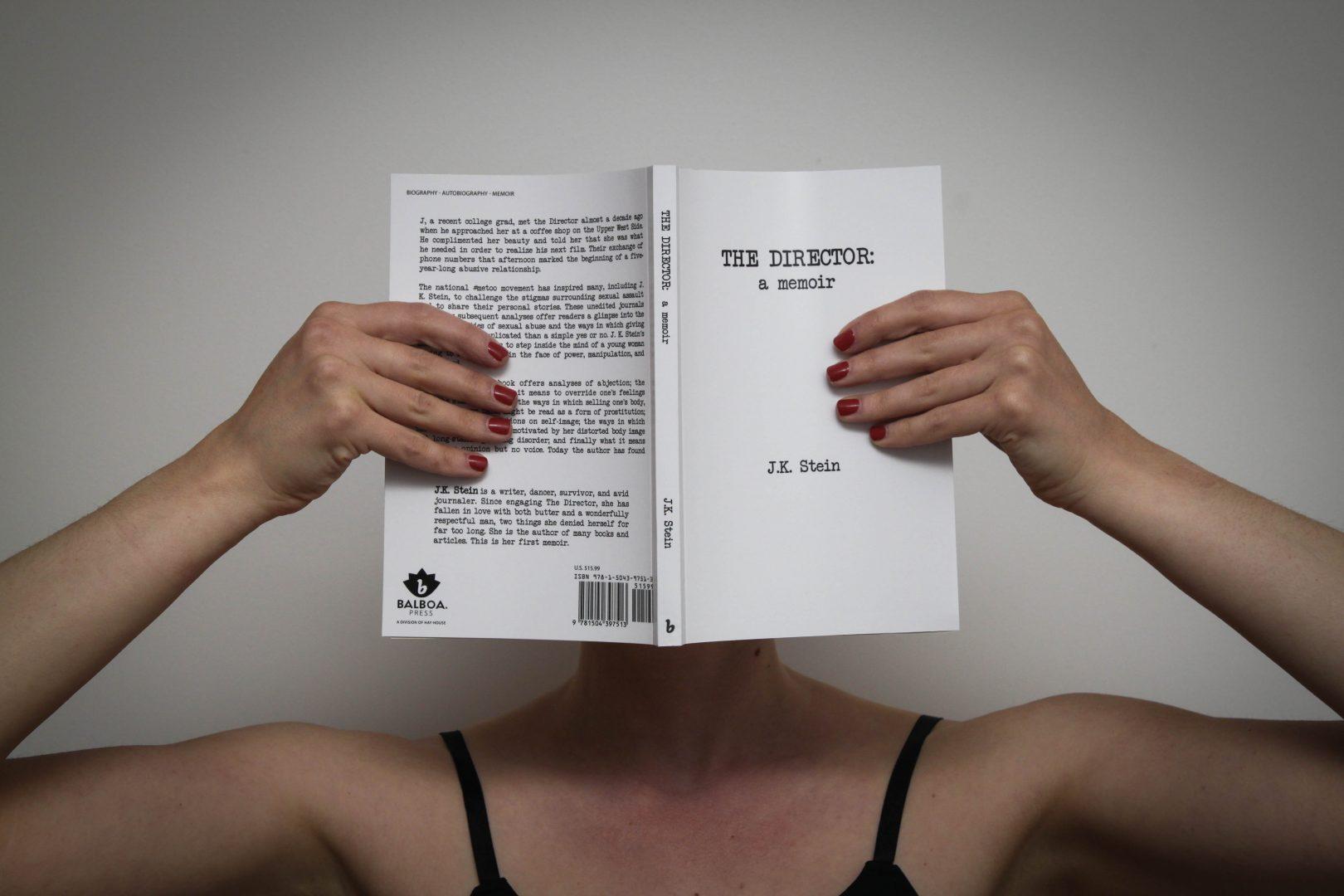Sexual harassment and assault have plagued society seemingly since the beginning of time. The internet sensation of #MeToo has provided a platform and safe space for people to voice their stories and seek justice following abuse.
The issues of sexual harassment and assault are particularly disturbing within the entertainment industry. In particular, film producer Harvey Weinstein has been accused of sexual abuse by more than 80 people.
Writer and performer J.K. Stein overcame her own story with another movie mogul and decided to tell her story in her book, “The Director: A Memoir.”
Told through her unedited journal entries, Stein writes of her experiences socializing with a man identified as The Director.
After meeting at a Starbucks in New York City, The Director paints Stein as his muse for a new film for which he promises her a lead role. Throughout several encounters, Stein documents their conversations centered around sex that aim at helping The Director write her character for the film.
Five years later, Stein left New York City, an abusive relationship, an eating disorder and The Director in her past as she continued her education and creative projects on her own.
I’ll be honest — this was a hard book to read. Stein’s relationship with The Director is uncomfortable from the beginning. Readers might think, “Well, why didn’t she just say ‘no’ and cut him out of her life?” But as the book progresses, we learn more about Stein and the choices she makes. It isn’t as cut and dry as one might hope.
I can’t speak for those who have experienced this caliber of sexual harassment or abuse — or any kind, for that matter — but I don’t know what sort of effect this book would have on those who have a similar past. If it was hard for me to read, how might another person feel who can relate more closely to Stein?
What starts off as philosophical conversations instantaneously turn sexual as The Director claims he needs to get to know Stein better to write her character. But everything he says is about sex. Though Stein admits in her writing that the movies he has made are good, The Director doesn’t seem to have a personality much deeper than sex-centric thoughts, conversations and behaviors.
The biggest issue at hand in every interaction with The Director is the power dynamics. He is a hot-shot director with money and connections, and she is a college student trying to break into the business. Stein also mentions that he is “well above 6-feet tall and weighed about three of me.” That’s intimidating in and of itself. And it is where consent is now questioned.
Is it appropriate to ask an actor to undress themselves and partake in other activities with a director in the name of inspiration? Is it fair to guilt them into uncomfortable situations in order to “learn more about them?” When that person is experiencing abuse in other aspects of their life, and this is taken advantage of by the person in power, the lines only blur further.
In my opinion, the entire relationship detailed in this book was inappropriate and disturbing. Stein’s story is one out of numerous others, but I think it’s important that it be told. Abusers need to be called out for their wrongdoing, and victims need healing. If this memoir is her way of getting closure, then by all means, more power to her.
What I also found hard to read was how Stein coped with these interactions at the time they occurred. This book was written nearly a decade after she met The Director, but she details her life struggling with disordered eating and body dysmorphia. These issues seem to only worsen after each meeting with The Director, and my heart broke for Stein as she dealt with the anxiety and confusion of this fruitless movie-making process.
By the end of the memoir, I felt tired alongside Stein. What made up for the stress and discomfort while reading the rest of the book was the epilogue — not to say that she owed it to the readers, but it did put the content into perspective and explain how she was able to digest her experiences.
Perhaps reading the epilogue first and then again at the end will remind readers why this book was written in the first place.
While I don’t necessarily recommend this book to everyone, I think it is particularly enlightening for those working in the entertainment industry. It not only brings to light the abuse and unethical practices within the industry, but it also may serve as a lesson that this shouldn’t happen again.




